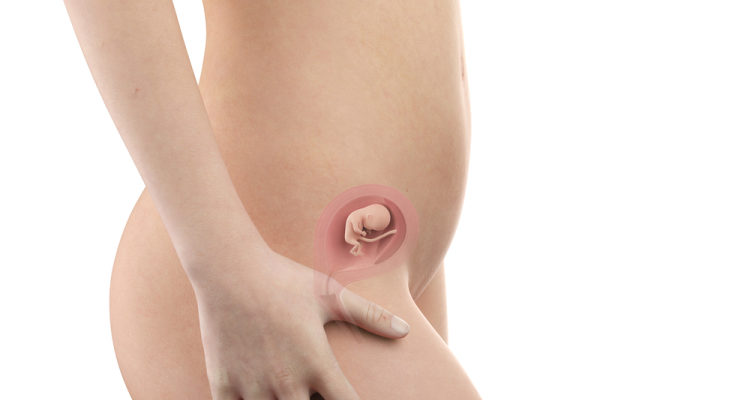
Main content:
13-week fetus development
Maternal body changes at 13 weeks of pregnancy
Doctor's advice about 13 week pregnancy
Maternal and fetal health at 13 weeks
13-week fetus development
How does a 13-week-old fetus develop?
The 13-week-old fetus is about the size of a pea with a length of about 7 cm from head to toe and weighs almost 30g.
When the second trimester of pregnancy begins, the mother's placenta has developed and is responsible for providing oxygen, nutrients and waste disposal to the baby. The placenta also produces the hormones progesterone and estrogen that help maintain maternal pregnancy and fetal development .
Your baby's eyelids can now be closed to protect the eyes. Your baby may also put his thumb in his mouth this week, although the sucking muscles are not yet fully developed.
Maternal body changes at 13 weeks of pregnancy
How does the mother's body change?
At the first prenatal visit, the doctor can prescribe for the mother to take nutritional supplements for the 13th week of pregnancy. Accordingly, the use of functional foods in combination with a healthy diet will ensure the baby. In the womb, a full complement of vitamins and minerals , such as folic acid, zinc, iron and calcium, are essential for growth and development. Consult with your doctor to determine the best way to take a vitamin, such as with a meal or with a beverage.
13 weeks old fetus, mothers need to note what?
Keep in mind the following tips for exercising during pregnancy whether you are, continuing or just started exercising:
Keep the intensity of the exercise at a level where you can talk without feeling out of breath.
Reduce the intensity of exercise or rest if you start to feel short of breath, exhausted, or dizzy.
Change your exercise routine as pregnancy progresses. Remember that your baby will add weight to the mother's body. So getting pregnant will be like carrying a backpack and that backpack will get heavier with each week.
Please pay attention to the changes in your body when pregnant until 13 weeks. In addition, you should also discuss exercise habits with your doctor if you experience any discomfort, pain or pain. serious exhaustion.
Doctor's advice about 13 week pregnancy
What should mom discuss with the doctor?
Mild breathing difficulties can only make mothers feel uncomfortable and does not affect the amount of oxygen provided to the baby by 13 weeks of pregnancy. But if she is breathing very hard, her lips or fingers seem to turn bluish. or mom has unusually fast chest pain and pulse, see your doctor immediately.
What tests do you need to know?
Depending on the specific needs of the mother and the doctor's examination, the doctor may perform the following tests and examinations:
Measure your weight and blood pressure
Check for sugar and protein in the urine
Check the fetal heart rate
Check the size of the uterus by touching the outside
Measure the height from the base of the uterus
Check to see if mother's hands and feet are swollen or varicose veins
Tell your doctor about any symptoms your mother experienced, especially any unusual symptoms
Ask questions or issues you want to discuss. Mom, please make a list of questions before the exam.
Maternal and fetal health at 13 weeks
What do you need to know to ensure safety during pregnancy?
1. Exercise
When my mother's heart rate is above 140 beats per minute during exercise, she will fear that she is having a problem. The best way to keep a safe and effective prenatal exercise routine is to listen to your mother's response. Your mother's heart rate will react very differently to exercise, so instead of monitoring your heart rate, use a more objective and accurate assessment. The purpose of this is to keep the intensity of mother's exercise within a moderate range but still somewhat challenge the endurance of the body. To put it simply, practice so that she is not out of breath that she cannot talk. If you are feeling out of breath, that is the signal to reduce the intensity of exercise and rest.
2. Caffeine
Do not eat too much chocolate if you do not want to absorb too much caffeine. While there is no evidence to determine the exact amount of caffeine that will endanger pregnant women during pregnancy, especially during the 13th week, it's best to limit as much as possible. Another reason moms should stay away from chocolate is that it can take the place of other healthy foods, oversupply with moms, and lead to excess weight gain.












